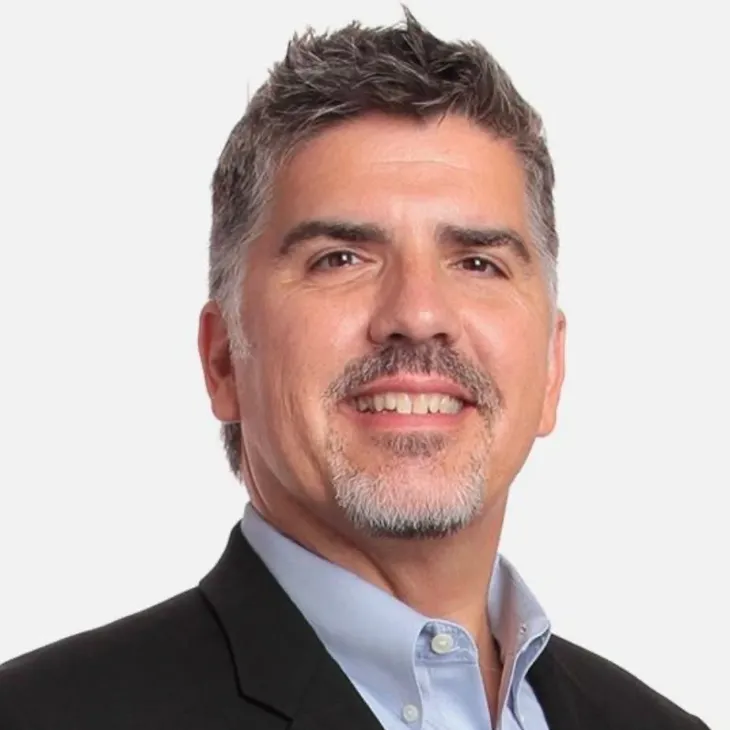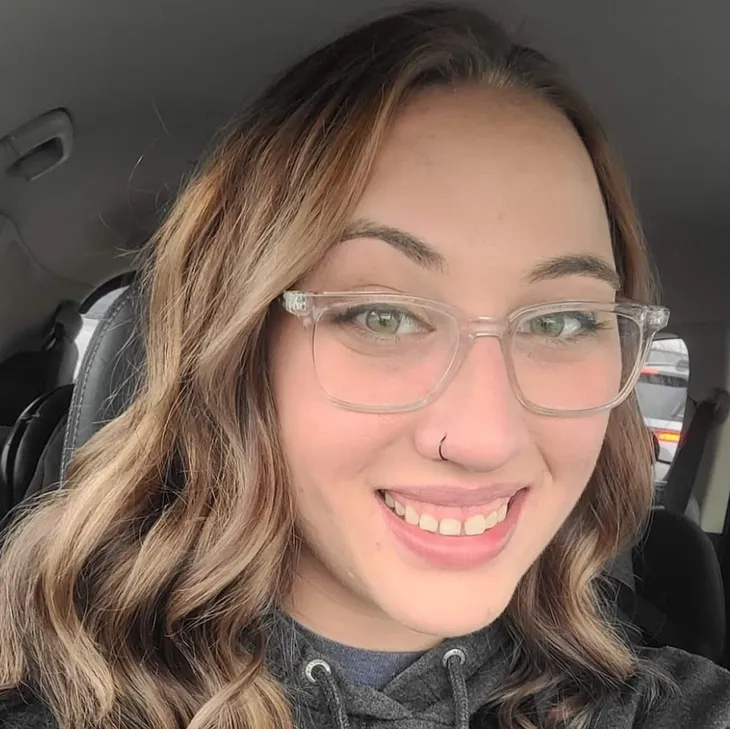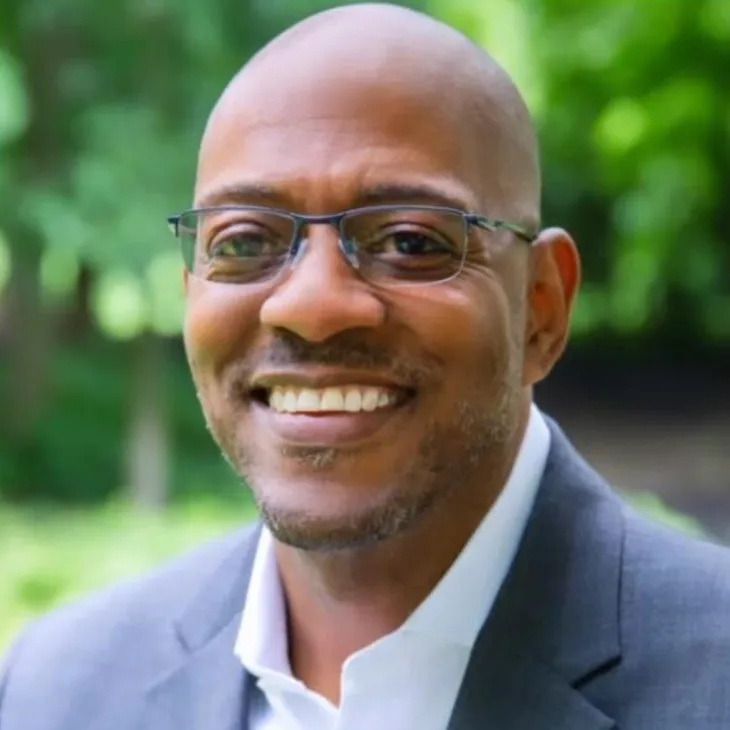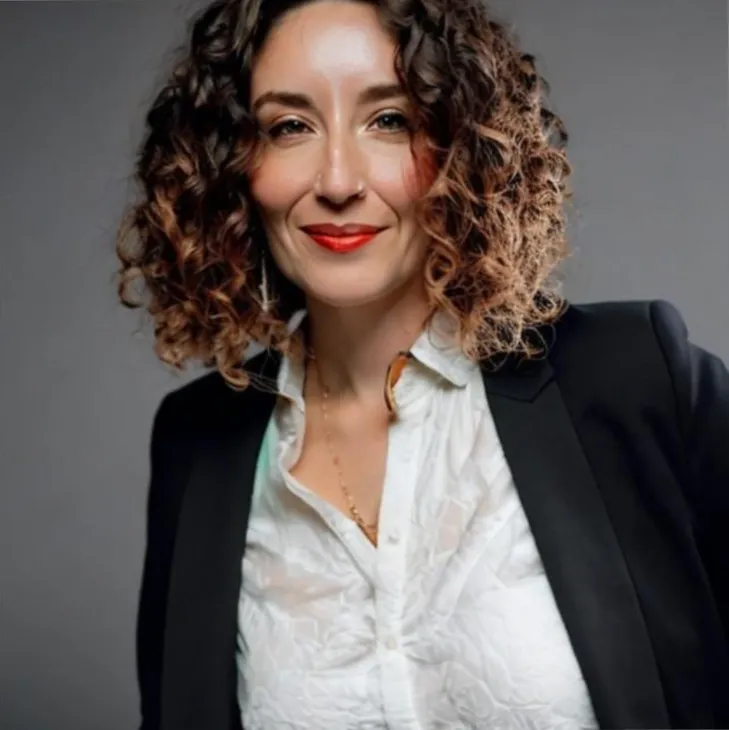Jim Boneau
Presence and Here-and-Now
I can calmly navigate conflict, feedback to senior/successful leaders, and challenging questions in front of audiences.
LIOS made a huge impact in my life when I needed it. I was already in a life transition and I knew I need additional education to get where I wanted to go.
Before I came to LIOS, I was a trainer in software company and led a lot of train-the-trainer programs. I knew I was a skilled teacher with natural talents, yet I also knew I wanted to focus on leadership development and the skills around communication, emotional intelligence and related leadership skills.
I was attracted to the experiential education and the real-time practical application of the practicums (T-groups) skills. I was impressed with the way I could grow my own self-awareness about me and my leadership– and the influence of my family system, while at the same time learning theories and practices that I could immediately put into practice as a leadership coach.
The LIOS difference is experiential education. It’s not about 100s of hours of research, tons of papers and write ups and coming up with my theory of things. Not that we didn’t write papers, but the real power was the engagement. There is nothing like the in-the-moment learning that adds the oomph to the curriculum. The skill to listen and respond in the here-and-now has allowed me to navigate a wide variety of challenging conversations including conflict resolution, feedback to senior/successful leaders, and responding to challenging questions in front of large audiences.
I was leading a leadership development workshop for 200 executives, in New York, at large industrial conglomerate, at their leadership development campus that I could only dream about before LIOS. I was with a team of four other facilitators. We were in our breakout groups and everybody’s Blackberry began buzzing. The client made an announcement that they were selling a huge division and more than half of the folks in the room were being impacted.
Of course, at this point, I couldn’t continue as if nothing has happened; I had to address what was happing in the room. LIOS lesson #1. Then, when I was talking to my group about what was happening, my boss came into the room and told us we were moving back into the main room to make an official announcement and my boss said, “Jim, I’m giving you the room.”
LIOS lesson #2: My boss recognized that my talents and ability to navigate–in the moment–were what the group most needed.
I didn’t know what I was going to do. All of a sudden, I was in a room of 200 people, half of whom may have been losing their jobs. The room was like a NASA working center: massive screens, huge stadium seating, everybody had their private desk with a light. It was called the pit, because everyone was looking down. A client representatives got up to the podium and read her script. Then, she said… “Now Jim Boneau.”
Every bit of my LIOS training told me that the only thing we could do at this point would be to acknowledge the truth of what was in the room: to recognize the emotion that was present and wouldn’t be resolved–and to listen to each other. That’s what I said and that’s what I facilitated. I didn’t try to solve their problems. I didn’t try to tell them they shouldn’t be sad. I didn’t try to build hope. I met them where they were. And, I listened.
A guy from an Ivy League school came up to me afterwards and said, “You know when this whole thing started, I thought this whole leadership thing was a bunch of BS. After what I just experience and saw what you did, I realized that I have completely misunderstood the meaning of leadership.”
LIOS learning not only supported a wonderful journey of professional success, but moreover, it helped me in my personal life to pursue happiness and authentic relationships.
~ Jim Boneau, Masters of Applied Behavioral Science, 2005 – 06.


Veronica Spaulding
Honestly, It Changed My Life
I learned to honor other’s stories, set boundaries, be more patient, and avoid slipping into fight or flight mode.
My company had identified me as an important emerging leader. Before the certificate program, I really didn’t have much expectation. I thought it would be like a Tough Stuff 2.0 and focus on emotional intelligence training. But I got WAY more than that…
I learned to move on from the past. Plus, I learned that other people have their own stories that informs their own way of being. I know we all know this, but by listening to each person’s family of origin story, it hit me in a way that changed my day to day experiences. Each person had a unique story. After that I could connect the dots with the person and our day-to-day interactions.
I don’t’ think I’ve ever been great at stating my wants. The program helped me take hold of this ability in a way that’s made a difference. I’ve learned how to express myself and honor my own feelings, at the same time. Everyone has them; its more about how and when to express them.
I have a high-pressure job; I’m in school full time and have four children. If it wasn’t for the LIOS training, I would be way more reactive than I am. I’ve been able to set boundaries, be more patient, and avoid slipping into fight or flight mode.
For example, at the plant we have a new customer in a new business category than our previous clients. This means the quality specs are different and new. I’m the only person in my area with automotive experience.
I’ve had to lean heavily on getting my voice out, under very tense conditions and stating my wants with other departments. I believe my actions have helped to successfully get this new customer off the ground. We are finally hiring a quality engineer and cross-functional departments are finally taking responsibility for their own related tasks.
Previously, my experience was different. I would verbalize what I had wanted over and over, and get nowhere. After LIOS training, it got clear. I simply said, “I want Elkhart to be treated as a supplier.” The plant manager heard and supported me. There was a lot of pressure to be “one company,” but when I presented the business case with my new found voice, things changed.
I’ve also upped my confidence. I’ve realized my voice matters. I’m able to have a better relationship with co-workers and listen better. I have more empathy for others’ day to day lives. I’m judging less and thinking sharply with an improvement mindset. I can take a step back, with more patience, and work through more issues without feeling attacked.
Our cohort still stays in touch. You can sense when someone is having a bad day, for example you can see someone and say, “Hey that’s that face you had in T-group. What’s going on?” It’s like we studied each other for a year.
I already had a certificate in management and leadership, but it did not really go into how to use specific theories and apply them day to day work. LIOS teaches EQ, diversity, and leadership in a way that really makes a difference.
It’s really life changing.
~ Veronica Spaulding, Bonnell Quality Supervisor. Tough Stuff and Certificate Program 2023 – 24
Joel Baker
Better Person-Better Leader
LIOS taught me how to connect, really listen, and understand others, and how that translates to business goals.
I was already doing some change management work within my organization when I was selected by my company to go through the master’s degree program.
The program exceeded my expectations. Up to that point, I had been leading more horizontally, but in the middle of the program I got my first manager role. The LIOS training was pivotal.
I started leading a team of hourly employees who were old enough to be my parents. This wasn’t the deep south in the Jim Crow era, but I will tell you that at that time, I didn’t have a welcoming party in East Tennessee. I was inexperienced; I was immature; and I was a lot of things that didn’t translate into an effective leader.
The program taught me about how people learn, how to connect with people, how to cater my message to my audience, how to really listen and understand people’s intrinsic motivation, and how to connect all that with business goals. One of the biggest impacts was learning about myself as a person and a leader. And then how to mesh what I was learning about myself with how to lead others.
When I consider my career trajectory, a fundamental piece that stands out is learning how to be vulnerable, with discretion of course. What I learned was that it was possible to really know others and to be known as a human in business. This way of being became a foundational leadership tenant throughout my career. For example, I just used this principle recently.
I’ve been in my current VP role for about two years, and my team is spread out across seven different states. I believe that my ability to allow others to know who I am and what I believe, accelerated our level of trust and genuine interest in
one another.
For my whole career, I’ve also used systems thinking as a way of approaching problem solving. It’s been a huge part of how I’ve been able to grow and develop in my career. I see people around me that don’t have those skills and I can see it’s more challenging for them. The family of origin work was very powerful. I see people struggling with authority issues all the time, but they are unaware.
I also use Sponsor, Agent,
Target all the time. When you are talking multi-level organizational change, role clarity and alignment are so important. These are some of the primary concepts from LIOS I use to make change sticky. These models and concepts are so integrated into my thinking, they are now the air I breathe.
I remember one powerful experience using VOMP in a 3rd party conflict resolution process in an effort to reduce the number of grievances. I was working at a site that was over 60 years old. There were remote locations on the site, so I used a conference room in an old training center that was off the beaten path and led folks the VOMP process. What I learned is that most of the issues were not contractual issues; they were all people issues – and I could help solve them. It was very satisfying work.
Paraphrasing is another example of a simple skill that made a major difference at work–and at home. My wife tells me that LIOS saved our marriage. It helped me be a better listener.
I’ve been leading people for a while, and I think these skills and theories will stay relevant for a long time. My mom would say, “He who has friends, must first show himself friendly.”
That’s a way to show vulnerability and invite you to connect with me. Vulnerability is a leadership characteristic that moves others.
When you apply these concepts it makes you a better person, and a better leader.
~ Joel Baker, Target Group VP, Global Supply Chain Logistics. LIOS ABS Master’s degree, 1994 – 96


Cat Cuevas
Leading on Purpose
LIOS gave me a more micro and applied behavioral sciences view through a cohort model and consistent practice.
LIOS previous degree was in International Peace and Conflict Resolution, so I had a macro view coming to the LIOS program of what happens when people can’t get along effectively. The LIOS experience gave me a more micro and applied behavioral sciences view through a cohort model where we practiced consistently.
Two years of practice and feedback from my cohort allowed me to refine my skills and build a more sophisticated practice for myself. It was a wonderful experience to have a community to brainstorm with and work together. The practice became an art.
It was a delight staying involved in the program over time, watching the uniqueness of each cohort discover its own passion, direction and flavor. My group graduated all women. We critiqued and expanded the curriculum and it’s application, exploring the relevance and impact of the models in different environments. We brought up power dynamics, trauma informed leadership and our lived experiences in class. And, we created our own theories of practice that centered in joy.
When I came to LIOS, I had been working in the nonprofit, education and healthcare sectors and I kept seeing the same problems over and over again. Implementations were the same. There was a lot of burnout. Nothing was really transforming. My work is about transformation and culture shift. I wanted to know the magic sauce that shapes transformations at scale.
My cohort and Dr. Mark Jones, the Program Director at the time, and other LIOS faculty helped me gain the capacity, personal resilience, and community resilience to sit in the muck, messiness and VUCA of leadership. Staying connected to my cohort and having ongoing opportunities to practice since then has elevated my career, helped me broaden and deepen my impact, and made me many forever friends in the process.
As a first step, the LIOS program was a great opportunity to learn outside of a typical corporate or education model. Based on my lived experiences and identities, the academic models typically taught didn’t work for me and my communities.
And often, created more harm that good. The space to tear apart the models and do action research with my cohort was liberating. This was the kind of learning that now helps me address the wicked problems in the world.
I came to the program already teaching conflict resolution, EQ and leadership skills. We had the privilege to learn at a deeper level, to critique, test and evolve the content and process of our learning so it better meets the needs of this day and age, and the contexts that we work. Our collective experience was quite special.
LIOS aims to give learners a place to apply learning. Leaders need a forum to practice skills, away from the job. These leader core skills: how to give and receive quality feedback, helping/coaching skills, the ability for self-reflection, and cultural competence are all very important for leaders.
Leadership today is broader, more chaotic, more uncertain, faster, and more ambiguous – It’s an impossible job to be a leader. Leaders who are rooted in their purpose, and can adapt themselves and their organizations are critical to the future of humanity.
~Cat Cuevas, Managing Director People and Culture, Seattle Foundation. LIOS Tough Stuff and Master’s Degree, 2011-2013
